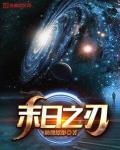Chapter 892 Eat?
The locusts in Africa are extremely large, with their bodies alone being seven or eight centimeters long, almost half the length of a palm.
They fell like raindrops, landing on the thick animal skin, and even made a slightly dull sound.
Just listening to the continuous sound made the audience in front of the screen feel a little depressed.
It is hard to imagine what a horrible scene the severe locust plague that Bifang described, which was as real as a black cloud, would be like.
Bifang gently lifted a corner of the fur.
The morning light filtered through the gaps between the hide and the ground, mixing light and darkness, truly revealing a brutal corner of the outside world.
Only then did the audience realize that what were originally just one or two locusts had already become a swarm.
The circle outside the animal skin was filled with palm-sized brown locusts, densely packed together. A few of them tried to squeeze into the gaps, but were swatted away by Bifang's flick of his fingers.
Just the first sight of it can give you goosebumps.
If I felt a little depressed just now, now I feel completely suffocated.
Too dense, too big, too numb.
The scary thing about a locust plague is that it covers the entire sky and earth.
The visual impact is comparable to that of a doomsday blockbuster.
And wherever it goes, there is really no grass growing.
[I can’t take it anymore, I’m afraid of secrets]
[Please change a pair of clean eyes]
[Disgusting]
[This guy is too big]
[Will you really not eat people?]
Harley's body was completely curled up. Every time a locust landed on the hide and caused a slight tremor, he would shake it and lean towards the Bifang beside him, making the space under the hide even more crowded.
As a cheetah, this was the first time in its life that it had seen such a horrifying scene, causing its eyes to widen and flash with a black light.
Jerry in his arms was also trembling, and I could feel his uneasiness through his clothes.
Bifang grabbed the cheetah's head with his big hand and pushed it to the ground, then reached out to grab the mouse, and finally couldn't help sneezing.
Harley kept leaning here, and the long hair on his ears poked his nostrils, making him feel so itchy.
"After a locust plague occurs, it must be dealt with. In the past, people's methods of dealing with locust plagues were rather clumsy. Locusts lay their eggs in the soil, so the land was plowed. The nymphs, which cannot fly, gathered on the ground, so they were set on fire. Later, chemical pesticides and airplanes were invented, and they were used to spray pesticides from the sky."
"This method is still commonly used, but it is very costly. The locust plague has been severe in recent years, which may also be related to Kenya's lack of aircraft."
"In addition, the global climate has been getting warmer in the past two years, and there was an El Nino event last year, which has caused the number of locusts here to surge."
Bifang sorted out some weather phenomena in the past two years.
El Niño means "Holy Child" in Spanish, and refers specifically to the phenomenon of abnormally warm sea water over a large area in the eastern and central equatorial Pacific Ocean.
Last year's El Niño event lasted until the end of the year.
Africa is originally arid, and locusts lay a huge number of eggs. With rising temperatures and heavy rainfall, vegetation grows wildly, providing perfect conditions for the growth of nymphs.
Locusts need a dry environment to lay eggs, but after laying eggs they will secrete a gelatinous substance that makes the eggs extremely waterproof and the hatching rate will not be reduced even through the rainy season.
For this reason, usually, if a severe drought is followed by heavy rainfall before the locusts hatch, a locust plague is likely to occur.
There were no adequate means to deal with the problem. The more locusts there were, the more eggs they laid. The more eggs they laid, the more locusts there were. It was like a snowball and the disease became a chronic one.
The only thing that can limit them is probably a large-scale reduction in vegetation, which will cause the locusts to starve to death due to lack of food.
"As I said before, the desert locusts will spread and cover most of the world."
"In fact, if we didn't have the Himalayas, which block most of the eastward locust swarms, and if we didn't have northeasterly winds that prevail in Southeast Asia in winter, and the movement of desert locusts depends mainly on the Indian Ocean monsoon, we would also be threatened by them."
In winter, the monsoon blows northward from the east coast of India, but then turns around and blows back, carrying the locusts with it.
In summer, the wind stops blowing and blows directly downwards, making it even more difficult for locusts to get through.
"The African locusts wanted to come to our country, but we were spared because of the double barrier of headwind and mountains."
There was a rare hint of relief in Bifang's tone.
[It’s so scary]
【It is truly a unique opportunity】
[It’s amazing]
[By the way, can locusts be eaten? With so many of them, they won't have to worry about food, right? ]
[Let you see what a real foodie is]
[Indeed, raising more chickens and ducks should also have a certain effect]
[Fool, you don't know that locusts are poisonous when they swarm together? ]
[Who says we can’t eat something if it’s poisonous? Do you understand? ]
【? ? ?】
"Ahem, everyone, please don't be so aggressive."
Netizens can always argue. Bifang complained in his heart, but explained calmly: "Actually, both sides are right. Locusts in a locust plague can be eaten, and they cannot be eaten."
"What I just said about chickens and ducks is indeed useful, but the locusts that chickens and ducks eat are mostly in the nymph stage, and they prefer to eat solitary locusts. If it is before a disaster, it is indeed a good method, but it is not effective after a disaster."
"This involves a self-protection mechanism of locusts. The locusts themselves know that becoming gregarious will make it easier for natural enemies to prey on them, so they release the odor signal phenylacetonitrile, and when natural enemies smell it, they are less likely to eat them."
"Under the protection of benzoacetonitrile, if natural enemies still attack the locusts, benzoacetonitrile will be converted into hydrogen cyanide ."
"Hydrogen cyanide. As you can tell from the word cyanide in its name, it is poisonous. It is quite toxic."
[Then people can’t eat it, right? ]
"Don't worry, let me tell you the conclusion first. Chickens and ducks are indeed not edible, but humans can eat them. This is based on facts."
"When Yiselie was hit by a locust plague, the local residents enjoyed eating locusts. They could catch a lot of them with a net and fry them directly in the oil pan until they were golden brown. The kid next door... ahem, that's what happened."
"It's not because we are immune to cyanide, nor is it a question of toxicity or dosage. A single locust in a high concentration area can cause mild poisoning symptoms."
"The fundamental reason is that hydrocyanic acid will evaporate and burn at high temperatures, and the speed is very fast. Animals will not eat cooked food, but humans can. The toxicity can be removed through cooking methods. It is not completely inedible, but it is very risky and it is difficult to guarantee that there will be no residue."
"So even if you want to eat locusts, it is best to catch locusts that have not yet changed color. After all, the color characteristics are still easy to distinguish, and they must be fried or roasted thoroughly to minimize the hydrogen cyanide content."
"Besides, you can't finish it. Eating it is just a drop in the bucket."
"I have talked about the density of locusts before. After a locust swarm is formed, there can be 3 million locusts per acre of land, with a total weight of six tons. This is a yield of 12,000 kilograms per acre. The yield of rice is less than 1,000 kilograms per acre now! There is a difference of more than 10 times. How can people eat them all?"
Most humans live in fixed places, while locusts have complete freedom of movement.
After catching locusts for a few days, all the crops were gone as the locusts quickly flew away.
This is the end result.
Eating locusts can only solve the short-term food crisis.
The audience all sighed when they heard this.
I didn’t expect that even though humans have developed to this level, they are still unable to do anything about these locusts.
In this way, Bifang and Halley lay on the ground, quietly waiting for the locusts to pass.
It was not until the sun was high in the sky that the buzzing sound completely disappeared, and my ears and eyes became clear.
It was as if the dark clouds pressing down on my head suddenly dissipated.






